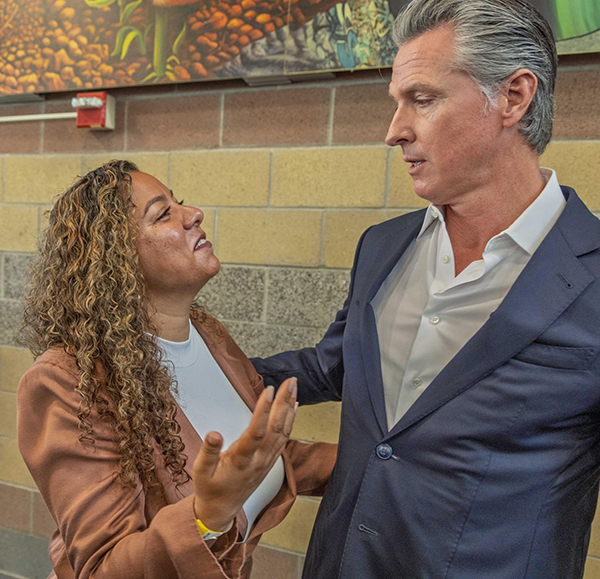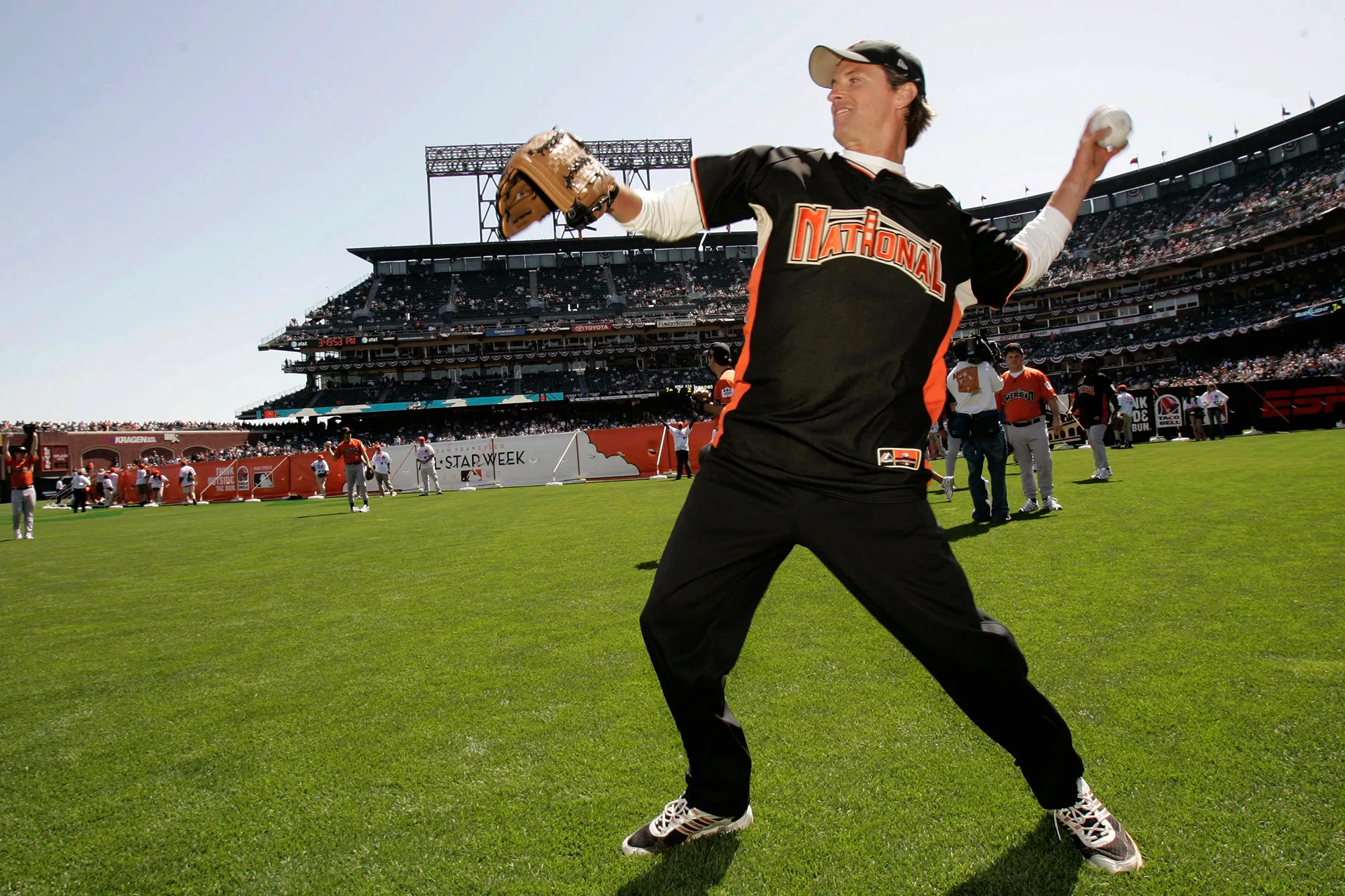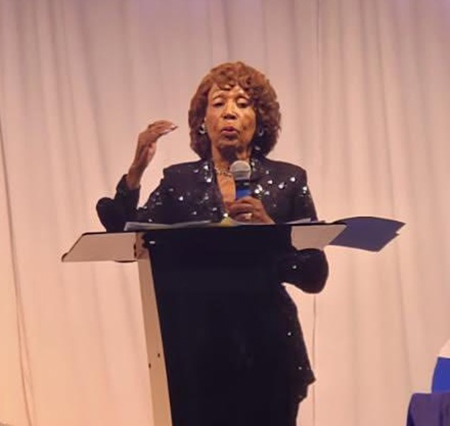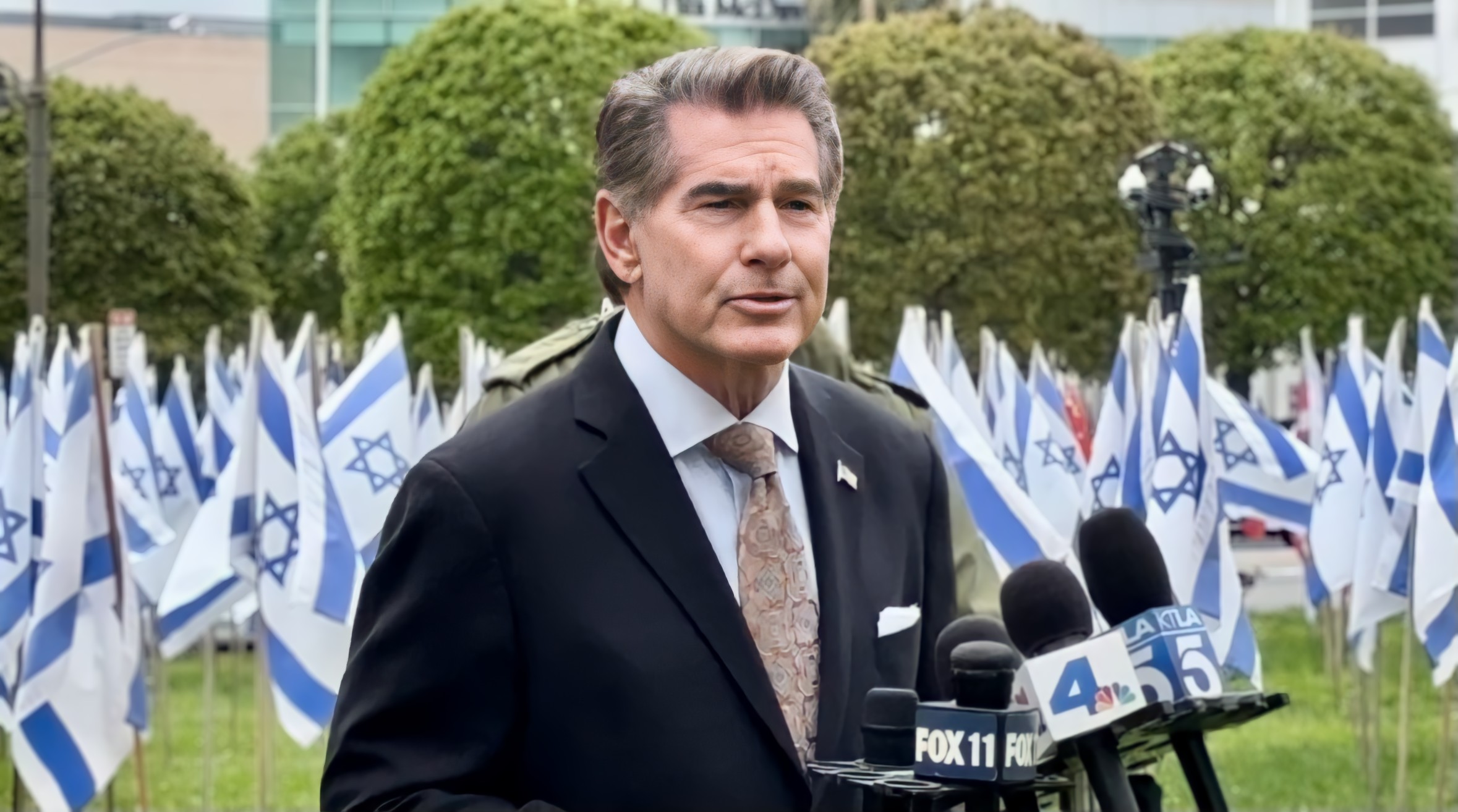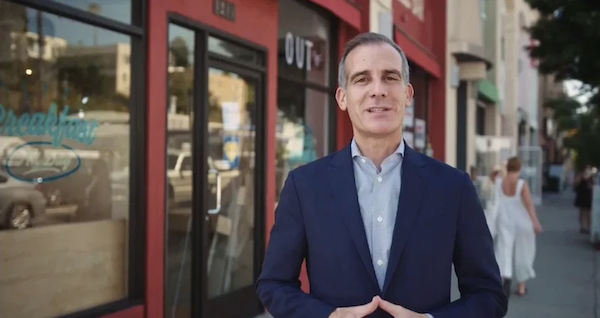Gipson’s ghost guns bill awaits governor’s signature
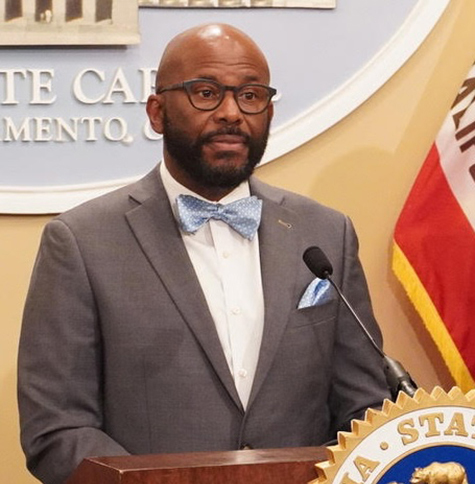
Assembly Bill 263, authored by Assemblyman Mike Gipson, proposes stricter regulation of ‘ghost guns,’ or unserialized and untraceable firearms. The measure has moved to the Gov. Gavin Newsom’s desk for consideration.
Photo by Antonio Ray Harvey
By Antonio Ray Harvey
Contributing Writer
SACRAMENTO — Both the state Assembly and Senate voted this month to advance Assembly Bill1263, authored by Assemblyman Mike Gipson, D-Gardena, a member of the California Legislative Black Caucus.
The bill seeks to tighten oversight of privately manufactured firearms — those made without serial numbers — by holding individuals who help produce them legally liable.
AB 1263 has now moved to Gov. Gavin Newsom’s desk for his approval or veto.
On Sept. 12 the Assembly voted 62-13 in favor of the legislation. The day before the Senate voted to pass the bill on a 29-10 vote.
AB 1263 is poised to become California state law at a time when political violence, state gun laws and the Second Amendment have taken center stage in the national conversation.
Gipson said ghost gun bills are “needed now more than ever.”
“It’s something I’ve been working on since I’ve been in the Legislature,” Gipson told California Black Media. “It’s a proliferation in all of America and California. The ghost-gun industry has found loopholes in our laws, and they have become evasive in terms of using our technology.”
According to Gipson’s office, AB 1263 broadens the scope of California’s Firearm Industry Responsibility Act, establishing a “firearm industry standard of conduct” that requires members of the firearm industry to take precautions and prevent illegal sales and harm.
In addition, AB 1263 creates a new misdemeanor crime for the unlawful manufacture of firearms and creates a rebuttable presumption that the owner or operator of a website is liable for digital firearm manufacturing codes posted on their site.
Gipson’s bill specifically targets the distribution of instructions for creating 3D printed and computer numerical control milled firearms. This ghost gun manufacturing method is widely used in the firearms industry for producing high-quality, precise and consistent parts.
AB 1263 mandates that vendors selling firearm-making equipment like 3D printers and computer numerical control milling machines must provide a clear and conspicuous notice about California’s laws regarding firearm manufacturing.
“These guns are plastic, undetectable, and can pass through metal detectors,” Gipson said, describing ghost guns made by computers. “We must be sure there are laws that stay consistent with technology, background checks and serial numbers. AB 1263 represents the work that we’ve been doing here in California.”
Arguments against AB 1263 largely focus on concerns related to Second Amendment rights, firearm manufacturing and potential restrictions on free speech.
Groups like the Gun Owners of America and Second Amendment advocacy groups contend that AB 1263 is unconstitutional, arguing that the right to privately build firearms is fundamental.
The California Rifle and Pistol Association has stated its opposition to AB 1263, stating that “To remove technology from an already grossly imbalanced situation puts law-abiding citizens in harm’s way.”
“This bill seeks in the name of public safety to decrease firearms safety by removing a critical technological way for manufacturers, engineers, and competitors to use common use tools such as CNC and 3D printers to make replacement parts that are generally unavailable and to improve parts to increase safety,” the association wrote to the Senate Judiciary Committee in March.
California Attorney General Rob Bonta is a sponsor of AB 1263 and any other legislation that prevents loopholes for individuals to purchase unfinished parts to assemble untraceable firearms.
“In the state of California, we have seen firsthand the effectiveness of our commonsense gun-safety laws,” Bonta said in March. “Ghost guns not only leave law enforcement in the dark but also put our communities at risk.”
To date, Gipson has authored at least three gun-related bills that were signed into law, including:
• AB 1621 (2022), a measure that restricts “ghost guns” and the parts used to build them.
• AB 1089 (2023), which tightens restrictions on the equipment and digital files used to manufacture untraceable firearms at home.
• And AB 7 (2017), which closed a loophole for open-carrying long guns in unincorporated areas of California counties, not ghost guns.
Pointing to pro-gun laws in states like Utah — which permit individuals to carry handguns openly or concealed on public college and university campuses — Gipson said he hopes other states will follow California’s lead by enacting sensible gun laws that protect communities, save lives and reduce violence.
“I’m hoping that Utah’s legislators will stand up in a loud voice and pass sensible gun legislation,” Gipson said. “California can only do so much, but if other states are not doing it, it defeats the purpose.”
Antonio Ray Harvey is a reporter for California Black Media.

